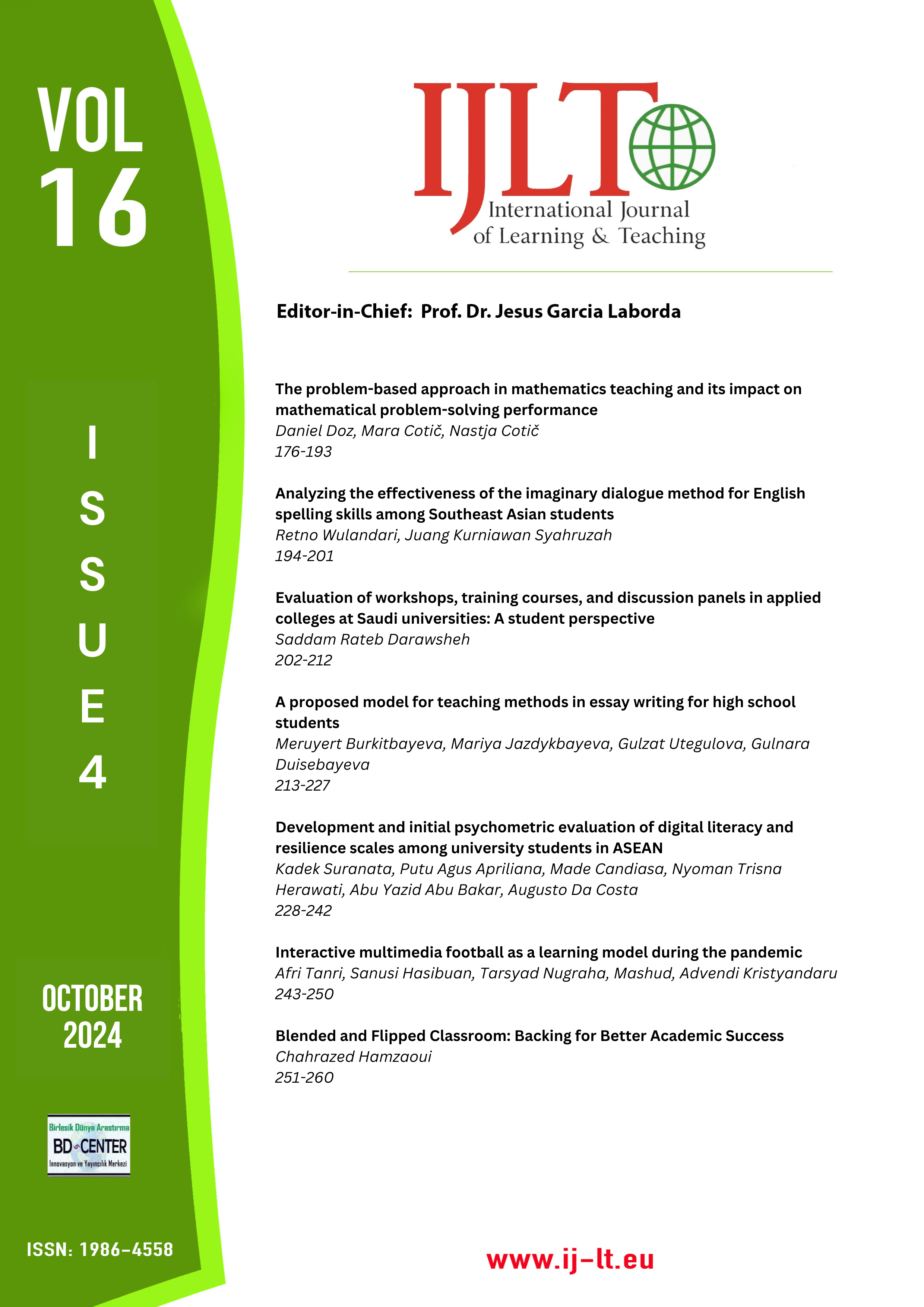Evaluation of workshops, training courses, and discussion panels in applied colleges at Saudi universities: A student perspective
Main Article Content
Abstract
This study evaluates the effectiveness of workshops, training courses, and discussion panels organized by colleges at Imam Abdul Rahman bin Faisal University from the perspective of students. The study population consisted of 1,511 male and female students from three main faculties: Administrative Sciences, Finance Sciences, and Computer Sciences. A sample of 950 students, representing 70 percent of the population, was surveyed. A questionnaire based on a five-point Likert scale was developed, covering two key areas. The first examined the qualities of a successful and engaging discussion panel through nine statements, while the second assessed speaker characteristics through 12 statements. The findings indicate that students from the Applied College highly valued the effectiveness of seminars and discussion panels, particularly in addressing issues relevant to university life. At a significance level of 0.05, statistically significant differences were found in student attitudes based on gender, with female students demonstrating higher levels of approval. The study recommends incorporating entertainment elements into discussion sessions and training courses to enhance engagement. Additionally, it suggests directing students toward training sessions aligned with their academic and personal development needs to maximize the benefits of these initiatives.
Keywords: Applied colleges; discussion panels; evaluation; training courses; workshops
Downloads
Article Details

This work is licensed under a Creative Commons Attribution-NonCommercial-NoDerivatives 4.0 International License.
Authors who publish with this journal agree to the following terms:
- Authors retain copyright and grant the journal right of first publication with the work simultaneously licensed under a Creative Commons Attribution License that allows others to share the work with an acknowledgement of the work's authorship and initial publication in this journal.
- Authors are able to enter into separate, additional contractual arrangements for the non-exclusive distribution of the journal's published version of the work (e.g., post it to an institutional repository or publish it in a book), with an acknowledgement of its initial publication in this journal.
- Authors are permitted and encouraged to post their work online (e.g., in institutional repositories or on their website) prior to and during the submission process, as it can lead to productive exchanges, as well as earlier and greater citation of published work (SeeThe Effect of Open Access).
